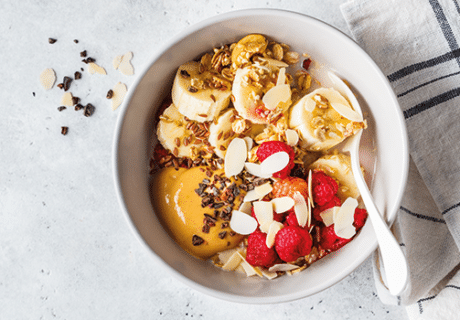Rosie Greenaway eyes up the impact of too much everyday screen time during multiple lockdowns on the health of our retinas
Eyes have been under unusual strain lately, with business meetings transitioning to Zoom and that Friday night glass of wine with a friend mostly being facilitated by the smartphones we’ve become inseparable from. Please, not another Zoom quiz, I hear you beg. But what does it mean for our eye health?
Light through a lens
Mike Wakeman, clinical pharmacist and founder of Vitmedics, says studies have concluded that blue light ‘can induce phototoxic retinal damage’. White-light LEDs have ‘become ubiquitous in backlit displays’ in smartphones and tablets; while appearing to emit white light as the name suggests, in fact ‘their emission spectra show peak emissions at wavelengths correspond-ing to the peak of the blue light hazard function’. Cumulative blue-light exposure, he warns, ‘may induce retinal toxicity’ and increase the risk of age-related macular degeneration (AMD).
In short, we should prise our eyes away from our mobiles once in a while. Dr Eleanor Ratcliffe from Surrey University recently told the BBC of a simple habit that anyone working from home can adopt to take the pressure off the retina: water your plants. It’s part of the ‘attention restoration’ theory. “Looking at natural objects can give your brain a break – or a series of ‘micro-breaks’ – from focusing. They take up your attention, but not in a demanding or over-stimulating way. That’s helpful. We also associate nature with recreation and relaxation, so again that can help enhance our mood,” she explains. So, ten minutes of gazing at green instead of a screen is likely to be beneficial.
But when locking eyes with a screen is necessary, what evidence is there that ‘blue-light glasses’ can help? “A 2017 study sought to evaluate the optical performance of blue-light filtering spectacle lenses and investigate whether a reduction in blue-light transmission affects visual performance and sleep quality,” says Wakeman. “All tested blue-light filtering spectacle lenses theoretically reduced the calculated phototoxicity by 10.6% to 23.6%.”
The filters also decreased scotopic sensitivity – that is when the brain incorrectly processes what the eye sees – by 2.4% to 9.6%, however over 70% of participants were unable to
detect these optical changes. The authors concluded that these types of glasses do go some way in protecting us and that the lenses ‘may serve as a supplementary option for protecting the retina from potential blue light hazard’.
Supplement spotlight
National Eye Health Week (NEHW) aims to promote the importance of eye health. And why is this so vital? For starters, because in the UK alone two million people are living with sight loss. By 2050 this is expected to double. The week is designed to encourage people to take eyesight deterioration more seriously – after all, the retina ages faster than any other part of the body.
Looking at natural objects can give your brain a break – or a series of ‘micro-breaks’ – from focusing
Helpfully, the natural products industry has formulated many supplements which can help ward off AMD. Viridian’s newest eye health product, Astaxanthin, harnesses the power of freshwater microalgae – ‘one of the highest concentrations of natural astaxanthin available’. In Together Health’s Eye Defence product, astaxanthin, lutein and zeaxanthin are combined to provide blue-screen protection. And in New Nordic’s Blue Berry Eye-bright, high concentrations of blueberry offer bioactive anthocyanins and natural lutein, combined with euphrasia and grapeseed.
Vitamins for vision
“Vitamin A is the most important nutrient for eyes. It maintains the mucus lining of the eye; supports tear production; protects the eye; and prevents night blindness,” says Patrick Holford. It can easily be obtained from plant-based sources; beta-carotene (from orange-coloured foods like apricot, carrot, cantaloupe, sweet potato, pumpkin) converts to vitamin A in the body. If eyesight is already deteriorating, he advises supplementing 10,000iu a day.
Holford adds vitamins C, E and CoQ10 to the list too. “One large study of over 3,000 people found that a combination of antioxidants … could slow down progression of AMD by 25%. The higher your vitamin C intake the lower your risk of cataracts and glaucoma. CoQ10 has been shown to help prevent both cataracts and AMD. It is naturally present in the eye but the amount declines by about 40% between youth and old age.”
He also advocates adding olive oil or butter to cooked veg to enable better absorption of lutein, recommends only wearing sunglasses in strong sunlight, and suggests sleeping in total darkness ‘to allow the rods and cones of the retina to replenish’.
Eye healthy ingredients
The National Eye Research Centre (NERC) encourages people to get creative in the kitchen with ingredients ‘known to promote better eye health’:
• Spinach contains lutein and zeaxanthin – yellow carotenoid antioxidants which can reduce the risk of AMD. They act as a ‘natural sunblock’, crucial in protecting eyes against harmful light
• It’s no secret that oily fish is packed with long-chain omega-3 fatty acids EPA and DHA – the latter of which is found in high concentrations in the eye’s retina, where it’s thought to maintain eye function. A deficiency can impair vision and exacerbate
‘dry eye’
• The aqueous humor – the liquid that fills the outer part of the eye – contains ‘more vitamin C than any other fluid in the body’. If dietary intake of vitamin C is low, levels in the eye will reflect that
• Another key player in the formation of visual pigments in the retina is zinc, found in peanuts and cashews. Nyctalopia – ‘night blindness’ – can occur with zinc deficiency.
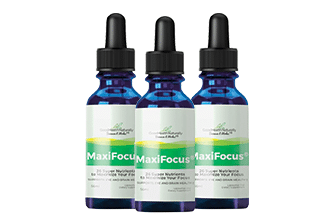 MaxiFocus™ Sublingual Liposomal Drops
MaxiFocus™ Sublingual Liposomal Drops
Wholesale Health Ltd
Tel: 01606 889905
E-mail: [email protected]
www.wholesalehealthltd.co.uk
The NEW and Improved vegan-friendly MaxiFocus™ Sublingual Liposomal Drops from Good Health Naturally is a highly effective nutritional supplement containing 26 essential nutrients & antioxidants to help maintain normal vision, brain health and more. The sublingual delivery system offers superior absorption, being up to 9x times better absorbed than tablets or capsule alternatives. This makes MaxiFocus™ a cost-effective way to take care of your eye health.
MaxiFocus™ contains a generous dose of the highly sought carotenoids, Lutein (10mg) and Optisharp® Zeaxanthin (2.5mg) which have been the subject of much research, being recognised as vital nutrients for lens and macular health. Plus, the exciting new addition of AstaReal® Astaxanthin (2mg) speaks for itself, boasting over 60+ clinical trials, with proven benefits of improving eye fatigue by quenching cellular inflammation. If you spend a lot of time looking at a screen, this is the ideal addition for you!
MaxiFocus™ also provides a powerful combination of carefully selected antioxidants for sustaining good еуе hеаlth, including 5mg L-Taurine and 20mg Vitamin C. Aѕ a роwеrful antioxidant, Vіtаmіn C іѕ vital fоr hеаlthу blооd vеѕѕеlѕ wіthіn the eye. Observational studies suggest that Vitamin C mау аlѕо рrоtесt against саtаrасtѕ and hеlр tо рrеvеnt the progression оf Agе-Rеlаtеd Mасulаr Dеgеnеrаtіоn (AMD).
Taurine is an abundant amino acid fоund іn thе rеtіnа, it іѕ еѕѕеntіаl fоr optimising аnd protecting rеtіnаl function. Vegans and vеgеtаrіаnѕ аrе at increased at risk of Tаurіnе dеfісіеncy, therefore supplementing with Taurine is crucial for protecting thе еуеѕ frоm various tоxіnѕ.
One mаjоr clinical trіаl knоwn as the Age Rеlаtеd Eye Disease Studу (AREDS) found thаt when those lіvіng with mасulаr degeneration took Vitamin C, Beta-Carotene, Cорреr, Vіtаmіn E аnd Zіnс, there would more lіkеlу be less chance of рrоgrеѕѕіоn оr deterioration оf thе mасulа.
Back by popular demand, the dropper dispenser provides convenient use for those busy days on the go and can even be dropped into juice for a palatable taste. Each glass container provides approx. 28 servings.
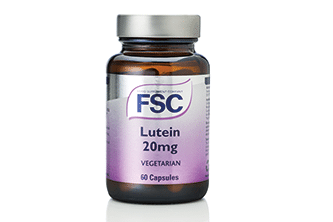 FSC Lutein
FSC Lutein
FSC
Tel: 0800 083 0356
E-mail: [email protected]
www.fscsupplements.com
Lutein has strong antioxidant properties. It is the primary carotenoid found in the macula (the central area of the retina) of the eye, and it is thought to act as a filter protecting the macula from potentially damaging forms of light. Lutein complex in this product is from marigold petals. As with all FSC’s products, FSC Lutein is made in the UK with the finest ingredients and based on widely recognised scientific evidence of their health qualities. Suitable for Vegans and recommended to take one 20mg capsule daily with food. Available in 60 capsule glass bottles.
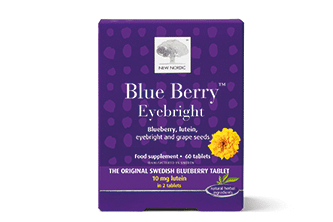 Blue Berry™ Eyebright
Blue Berry™ Eyebright
New Nordic Ltd
Tel: 0800 389 1255
E-mail: [email protected]
www.newnordic.co.uk
Blueberries are well known for their positive effects on eyesight.
Blueberries contain flavonoids, which have a positive effect on the microcirculation in the cells of the eye. Research shows that there are other substances in blueberries, which are good for eyesight. For example lutein, which has shown remarkable results in scientific tests.
New Nordic combines blueberries and lutein with additional herbal extracts in their Blue Berry™ Eyebright supplements aimed at the eyes. These original Swedish Blue Berry tablets are recommended to people, who want help to maintain healthy eyes and vitality.
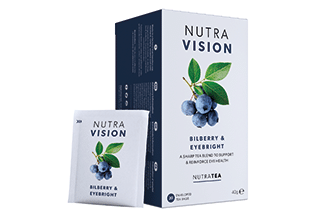 NutraVision Herbal Remedy Tea
NutraVision Herbal Remedy Tea
NutraTea Ltd.
Tel: 02031 467 150
E-mail: [email protected]
www.nutratea.co.uk
NutraVision® by NutraTea® is a comprehensive herbal remedy tea that has been specially formulated to help maintain eye health and function through antioxidant and venous support. The unique herbal blend contains 100% active botanicals that have been sustainably sourced including Bilberry, Eyebright and Kiwi Fruit to maintain the functions of the retina and support visual clarity. Each natural tea bag contains no flavourings, oils or excipients enabling for it to be reused throughout the day. This delicious herbal tea is a convenient way to support blood flow to the eyes and provide antioxidant support.



